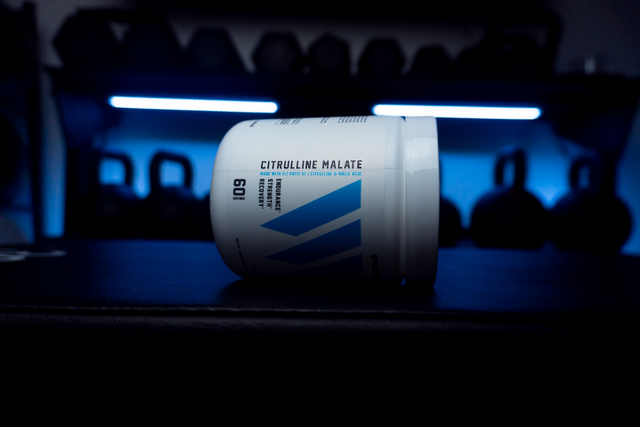MCT Oil is currently all the rage and for good reason. MCT Oil is a great source of healthy fats and marketed as a clean and ‘natural’ fuel source for your brain and body. Supplementing with MCT oil could potentially provide you with some uplifting health benefits; power your performance, and enrich your daily diet. Let's find out more about the benefits of MCT Oil and if it's really worth it.
What is MCT Oil?
MCT Oil or (medium-chained triglycerides) are a type of dietary fat found primarily in coconut oil and palm oil. MCT is actually a man-made saturated fatty acid and usually a combination of both Coconut and Palm Oil. Compared to most dietary fats, MCTs have a different molecular makeup, as they contain between six and twelve carbon chains, as opposed to LCTs (long-chained triglycerides), which are more commonly found in the food you eat and contain more than twelve carbon chains. With a smaller chained makeup, MCTs provide enhanced bioavailability, providing a quick and clean conversion into caloric energy.
Fatty Acids that are classified as Medium Chain Fatty Acids (MCFAs) are as follows
-
Caproic acid, also called hexaonic acid (C6-six carbons)
-
Caprylic Acid, also called Octanoic acid (C8-8 carbons)
-
Capric Acid, also called Dacanoic acid (C10-10 carbons)
-
Lauric Acid, also called Dodecanoic acid (C12- 12 carbons)
Is Lauric Acid Good For You?
MCT Oil is usually a mixture of one or more of the MCFAs above. However Lauric acid has a longer molecular structure and is typically considered to be less beneficial in boosting energy and burning body fat. Yet, other studies indicate that Lauric acid is the most beneficial of all MCFAs, which acts as a slower burning fuel source. This could perhaps prolong energy and optimize digestion.
Coconut Oil Vs. MCT Oil

Remember when Coconut Oil used to be the superfood that could cure everything? It was great for frizzy untamable hair, moisturized your dry skin, you could cook with it, and it even helped with weight loss. Turns out that Coconut Oil got its solid reputation because it contains MCT.
So if MCT is derived from Coconut Oil, what’s the difference between Coconut Oil and MCT Oil? Good question. The main difference is the content of MCT. Coconut Oil contains up to 55% MCT, while MCT Oil is a concentrate of Coconut and Palm Oil and contains 100% MCT. Therefore coconut oil does contain MCT, just in relatively smaller quantities. Additionally, coconut oil contains a larger amount of Lauric acid, which can slow down the digestive process which conflicts with the claimed health benefits of MCT as being a fast absorbing clean fuel for the body and brain. Oils marketed as MCT are often a combination of Capric and Caprylic acid or a concentrate of just Caprylic making them a fast absorbing fuel source. Therefore Coconut Oil is great in many different capacities, however if you’re looking for a fast acting fuel source, MCT might be what you’re looking for.
What Are The Health Benefits of MCT Oil?
Weight Loss & Metabolism

Most of the research conducted on MCT Oil has to do with benefiting weight loss and metabolism. A meta-analysis of thirteen different randomized controlled trials, on weight loss and body composition, determined that the replacement of LCTs with MCTs in the diet could potentially induce ‘modest’ reductions in body weight and composition. However, ‘modestly’ is not good enough to believe it will have any real effect on body composition. Further research will need to be conducted on MCT to determine the efficacy in the management of body composition [R].
Keeps You Fuller For Longer
Researchers also looked at the satiating (the ability to keep you fuller for longer) factors of MCT compared to those of Coconut Oil. Following an overnight fast, participants drank a breakfast smoothie containing 204 k-cals of MCT, coconut, or vegetable oil. Participant’s reported their appetite ratings before lunch each day. Turns out, that MCT showed a significant difference in energy and macronutrient intake, as participants reduced food intake and remained satiated as compared to coconut and vegetable oil.
Digestive Health

A peer-review published in the Journal of Gastroenterology investigated the use of MCT in certain gastrointestinal disorders. The review found that MCT digestion is rapid and simple as compared to LCTs. Fast metabolizing, pure MCTs can provide those harder of digestion with fast-acting fuel for their body and brain.
RELATED ARTICLE 6 Natural Ways To Improve Your Digestive Health
How Much MCT Oil Do I Need?
Pure MCT Oil is virtually tasteless and odorless, which makes it easy to include in your diet. You can slug it straight, add it to your smoothies, use it in salad dressings or, whatever your little heart desires. A tablespoon of MCT oil contains 14 grams of fat and 115 calories. It’s suggested to use a maximum daily dose of 50-100 grams or 4-7 tablespoons per day for improved digestive health. That’s equivalent to 4-7 tablespoons (60-100 mL) per day (56-98 grams of fat and 460-805 calories). Personally, 460-805 calories are pretty excessive, especially if you’re trying to lose weight. The benefits of MCT on your metabolism will definitely not offset the added calories. The best way to take MCT and what most MCT brands recommend is starting with half a tablespoon to see how you respond.
MCT And The Ketogenic Diet
While LCTs are typically used in the Keto Diet, the use of MCTs may actually work better, due to the greater potential to yield ketones for rapid oxidation. MCTs don’t require bile or pancreatic enzymes to make them a bioavailable form of energy and are directly absorbed through the gut, into the bloodstream and sent to the liver. Not to mention MCTs provide fewer calories per gram than LCTs.
RELATED ARTICLE The Ketogenic Diet: A Life Without Carbohydrates
MCT Oil Vs. Bulletproofs XCT Oil
Bulletproofs XCT oil is made from Caprylic and Capric acid, derived from Coconut Oil. Therefore, there is literally no difference between MCT and XCT oil. They’re synonymous. One interesting fact however is that Bulletproof claims XCT oil helps improve cognitive performance, yet there are no clinical studies indicating or providing enough substantial evidence to support MCTs effect on cognitive performance.
Should I Be Taking MCT Oil?
MCT Oil definitely has some great health benefits in terms of its rapid absorption rate as compared to other oils like Coconut Oil. That being said, if you're creating a healthy well-balanced diet, chances are you're going to be able to get your good healthy fats through your nutrition alone. Therefore, adding MCT's to your diet might be unnecessary. But, If you’re on a low carbohydrate or ketogenic diet, then yes MCT oil, would be a great addition considering the satiating factors and it's fast absorbing ability. MCT Oil would also be a great addition to those that intermittent fast as a great addition to their coffee in the morning, to remain in the fasted state. Consequently, MCT Oil has some great health benefits, it just depends on if it's right for you and your lifestyle.
References
- Mumme K, Stonehouse W. Effects of medium-chain triglycerides on weight loss and body composition: a meta-analysis of randomized controlled trials. J Acad Nutr Diet. 2015;115(2):249-63.
- Kinsella R, Maher T, Clegg ME. Coconut oil has less satiating properties than medium chain triglyceride oil. Physiol Behav. 2017;179:422-426.







